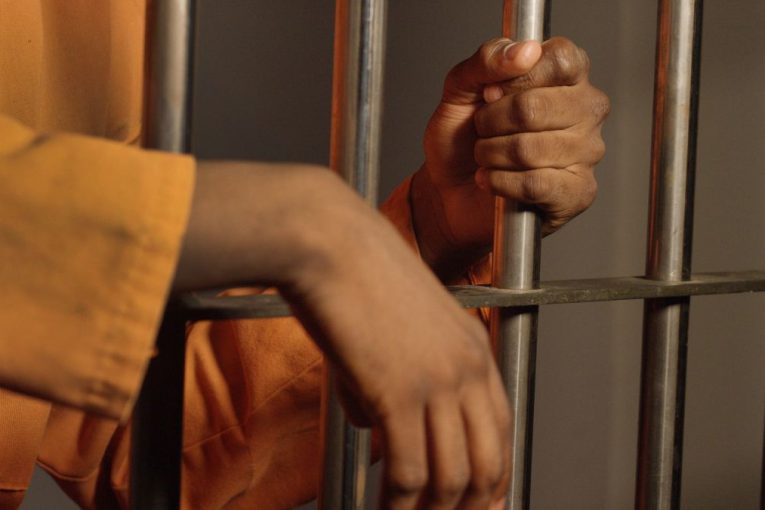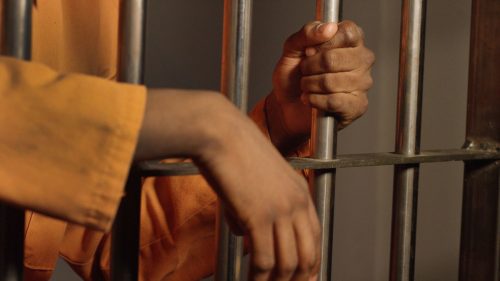

By Rena Abdusalam
BATON ROUGE, LA – The Capital Appeals Project, a nonprofit law firm located in Louisiana, released a report about Louisiana’s capital punishment system this week, noting the state’s error-prone death row institution, including details about racial and geographic makeup, intellectual disability, mental illness, claims of innocence and other applicable issues.
Fifty-six men and one woman are currently on Louisiana’s death row, according to the report; three-quarters of them are people of color and 40 percent individuals with recorded intellectual disability who should be constitutionally protected against capital punishment.
“Louisiana death sentences reveal a stark racial disparity. Louisiana’s death penalty is overwhelmingly imposed on people of color,” the law firm claimed.
The Capital Appeals Project reported 67 percent of the state’s death row prisoners are Black, although only 33 percent of Louisiana’s population is Black, and 63 percent of the prisoners were convicted of killing a white person.
The nonprofit said, “Many of the cases of the Black people on Louisiana’s death row carried racial overtones. There are Black men currently on the row who were sentenced to death by all-white juries, and there is evidence that jurors in some cases openly discussed race during their deliberations.”
“Louisiana’s death row population also reflects the well-documented reality that those who are convicted of killing a white person are significantly more likely to be sentenced to death than are those who kill Black people,” added the Capital Appeals Project, noting that currently only two white people are under a death sentence for killing Black victims.
According to the fact sheet, no white person in the state has been executed for killing a Black person. However, the report noted 24 out of the 28 people that have been executed since 1976 were convicted of killing a white person.
The report stated that since 1999, the year when death row prisoners gained the right to counsel in post-conviction proceedings, only nine innocent people have been exonerated from the state’s death row.
“Louisiana’s death penalty system is woefully error-prone, with an 83 percent reversal rate in capital cases since 1976,” said the law firm. “There are several people on Louisiana death row in 2023 who have serious claims of actual innocence.”
The nonprofit continued, “The racial disparity in Louisiana’s death penalty is reflected in its wrongful capital convictions. Six of the nine innocent people exonerated from death row are Black, while three are white. Seven of the nine were falsely convicted of killing white victims.”
The study also showed that at least 23 people with evidence of intellectual disability remain on death row, despite the Constitution forbidding the execution of people with intellectual disability due to the recognition that they lack “moral culpability” and are “vulnerable to being manipulated by accomplices or pressured into false confessions.”
“In this respect as well, Louisiana imposes capital punishment in a racially skewed manner. Nineteen of these 23 prisoners with evidence of intellectual disability are Black, and four are white,” the organization wrote.
In addition, the fact sheet declared Louisiana has sentenced many young Black men to capital punishment, despite the Supreme Court’s acknowledgement of scientific progressions regarding the understanding of young offenders’ culpability and the late-adolescent brain development.
Nonetheless, 27 out of the 57 Louisiana death row inmates were 25 or younger at the time of their crimes, half being nearly 21 or under, according to the Capital Appeals Project, that added the 22 prisoners mostly identify as Black, and 14 of the 22 prisoners have documented intellectual disability, 13 of them Black as well.
The Capital Appeals Project commented, “This disparity reflects the criminal justice system’s entrenched unwillingness to give young Black men, including those with intellectual disability, the kind of second chances that younger white offenders often receive. Louisiana’s death sentences are concentrated in a small number of high-use parishes.”
The nonprofit said 42 percent of the state’s current death sentences are heavily concentrated in two parishes, Caddo and East Baton Rouge, and almost three-quarters of its death sentences were appointed in just seven of the state’s 64 parishes.
“Significantly, there has not been a new death sentence in East Baton Rouge Parish since 2015, or in Caddo Parish since 2013. Louisiana’s death row thus is a relic of a past era of prosecutorial overreach in capital cases,” said the law firm. “The seven high-use parishes have overwhelmingly imposed death sentences on Black people.”
The Capital Appeals Project continued, noting the seven high-use parishes, which includes Caddo Parish, East Baton Rouge Parish, Jefferson Parish, and Orleans Parish, “prosecuted 31 of the 38 Black people on Louisiana’s death row.”
Moreover, the report declared many Louisiana death row inmates were convicted and sentenced in cases where “prosecutors withheld favorable evidence, relied on false testimony, and/or relied on ‘junk science.’”
“The job of a prosecutor is to serve the people and do justice. But, as the significant number of exonerations from Louisiana’s death row indicates, this principle is often subordinated to a ‘win at any cost’ mentality. Indeed, the state and federal courts have repeatedly vacated Louisiana capital convictions and death sentences due to prosecutors’ misconduct,” said the law firm.
Lastly, the Capital Appeals Project announced, “A significant majority of Louisiana death row prisoners have been diagnosed with mental illness, intellectual disability, or brain damage; a majority also experienced horrific trauma during their childhoods.”
“There are people who remain on Louisiana’s death row despite having been found incompetent by the courts following expert evaluations. Moreover, a majority of the people on Louisiana’s death row (39 of 57) have been diagnosed with serious mental illness and/or brain damage,” the law firm confirmed.
“These individuals are not the ‘worst of the worst.’ They are vulnerable people who were failed by the caregivers and institutions intended to protect them,” the Capital Appeals Project added.
The report also said the true rate of mental illness, brain damage, and childhood trauma among the death row inmates could be even higher than the indicated numbers.
“Many prisoners have never had comprehensive mental health, neurological, trauma or social history evaluations because their trial lawyers failed to do that all-important work and they are still waiting for the overburdened state post-conviction defense system to investigate their cases,” said the law firm.
“[The inmates’] cases reflect the racial bias, geographic concentration, prosecutorial overreach, and other serious flaws that have led a growing number of people across the political spectrum to recognize that capital punishment is a failed public policy,” explained the Capital Appeals Project.
In June of this year, 56 out of 57 Louisiana death row prisoners filed clemency applications, pursuing a reduction of their death sentences to life without parole—the Board of Pardons will begin considerations of the requests starting Oct. 13, the law project said.